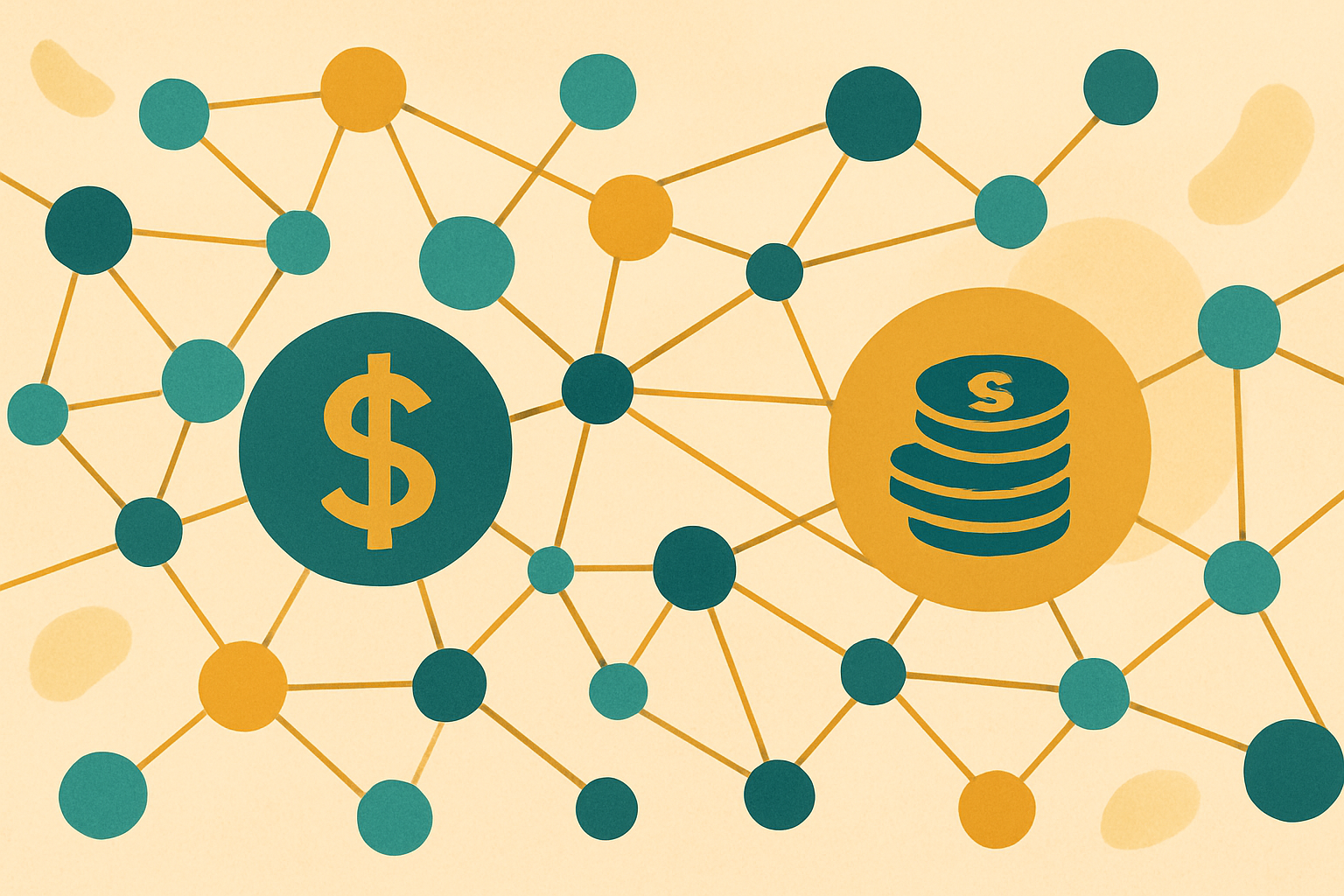How’s the Money Flow? – PoP Up Session Recap
PoP Up sessions are a space for network practitioners to dialogue about Problems of Practice.
In our PoP Up Talk Shop on September 18 – How’s the Money Flow? – we invited network practitioners to share data about the sources and uses of funds in their networks. We talked shop about raising money for core operations, coordinator compensation, and financial support from members.
The conversation was rich and resonant. Network leaders clearly articulated shared challenges related to the complexity of their roles and the often invisible work of trust building required for collaboration. Practitioners shared strategies for communicating the fundamental value and catalytic role of relational work to members and funders. They also emphasized the importance of core funding and the opportunity to formally recognize the variety of contributions members make to resource networks.
Before reading the summary, we invite you to contribute to the data set and describe how money flows in your network. This survey contains 8 questions. We’re looking for at least 40 networks to participate anonymously. We’ll share the aggregate results with everyone once we reach this goal. The ambition is to help us as practitioners, and our members and funders, to understand how resources are utilized to cultivate healthy networks capable of co-creating impact.
Session Summary
Practitioners know from experience that network leadership requires significant invisible labor, relational care, and adaptability that are often undervalued and underfunded. Many network leaders are struggling to find balance between their passionate drive to realize the network’s potential and a sustainable workload. Why?
Members and funders don’t recognize and readily resource the invisible architecture that makes collaborative, network-led impact possible.
Relationship-building, coordination, and reflection are not ancillary—these activities enable networks to shape change. Valuing the soft work of trust building, shared learning, and adaptive action that strengthens ecosystems translates to making strategic investments in coordination capacity. Practitioners invite all stakeholders to understand that the ongoing work of cultivating relationships is essential for deep, durable impact.
Some of the most important themes practitioners named
Structural funding gaps: What networks truly need to sustain themselves rarely fits traditional funding frameworks. Core operations — coordination, communication, relationship-building, and convening —are not typically seen as fundable or exciting to donors. Practitioners struggle to make an investment case to funders looking for tangible, short-term deliverables when working inclusively, through relationships to navigate complexity takes time, and the outcomes will emerge from the interactions of network members.
Struggle to quantify: Relationship-building and holding space for collaboration are difficult to quantify. Coordination, communication, and trust-building require substantial invisible labor. Members, funders, and even coordinators themselves underestimate the time and energy it takes to sustain a healthy network.
Uncompensated effort: Many coordinators are paid for less time than their role requires. As a result network practitioners regularly devote more time and emotional energy than their contracts provide. Network leaders often struggle to set boundaries around unpaid labor because of their commitment to the network’s success. This overextension is particularly common in early stage networks.
Multiple forms of support: Many members contribute time, expertise, and energy rather than direct financial payment. Network leaders rely on diverse resources coming — financial, intellectual, and relational — but struggle to equate these other forms of support to financial investments. This makes it difficult to tell a cohesive story about what networks need to thrive and the social value they create.
Some adaptive strategies practitioners are using
Packaging core network functions within budgets of funded programs, or identifying funders whose values and time horizons align with the network’s purpose.
Evolving narratives to include more nuanced storytelling that elevates the value of network-building.
Valuing member contributions of time, expertise, and peer learning so that exchange is mutually beneficial and not solely financial.
Supportive next steps for the field of network practice
Exploring stories, metrics, and evidence that capture relationship development, trust, and shared learning and show how they lead to tangible outcomes.
Recognizing network stewardship as a professional field of practice and elevating the mix of high level competencies and relational capacities required of leaders.
Establishing fair salary ranges with clearer understanding of the time necessary to cultivate and sustain a healthy network.
Hosting dialogues with network leaders about what “success” looks like in relational and systemic work, moving beyond short-term deliverables toward long-term, ecosystem-level outcomes.
One insight that emerged from the conversation:
Care, health, and resilience are felt in their collective expression — from the heart of the network. These qualities emerge from interactions between network members, so engaged participants experience and witness thriving (and declining) networks firsthand. This felt sense of thriving is a holistic awareness. It doesn't translate well to countable things or easily expressed as numbers.
Stories that hold nuance and complexity beyond charts and graphs do a better job of conveying the collective intelligence of the network and the value in the ripple effects generated by member actions. Even better than stories, may be direct experience of the network. This PoP Up dialogue leaves us wondering: when it comes to network funders, could “inviting in” be a better alternative to “reporting out”?
What are your thoughts? We’ll continue exploring the relationship between funders and networks. In meantime… are you willing to share about how the money flows in your network?
Next PoP Up: September 18th
Join us for the our next free PoP Up session!
Date: Thursday, 29 October, 2025
Time: 16:00 SAST / 17:00 EAT / 10:00 EST / 14:00 GMT / 07:00 PT (90mins)
Zoom details to follow registration
Topic: Narrative Change - Theory of Change
Join us this month to discover a practical approach for involving participants in shaping your network’s Theory of Change. We’ll introduce a facilitation method that helps gather and synthesize input into a compelling narrative—one that aligns your network’s purpose, culture, and activities in a meaningful way. Bring your current Theory of Change and get feedback from participants in the PoP Up.

